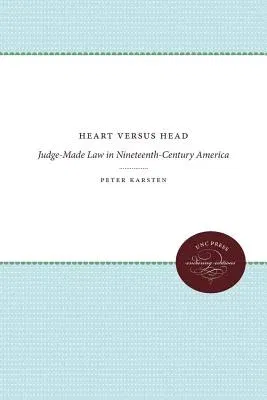Peter Karsten
(Author)Heart versus Head: Judge-Made Law in Nineteenth-Century AmericaPaperback, 1 December 2015

Qty
1
Turbo
Ships in 2 - 3 days
In Stock
Free Delivery
Cash on Delivery
15 Days
Free Returns
Secure Checkout
Part of Series
Studies in Legal History
Part of Series
Studies in Legal History (Paperback)
Print Length
512 pages
Language
English
Publisher
University of North Carolina Press
Date Published
1 Dec 2015
ISBN-10
1469629054
ISBN-13
9781469629056
Description
Product Details
Author:
Book Format:
Paperback
Country of Origin:
US
Date Published:
1 December 2015
Dimensions:
23.39 x
15.6 x
2.9 cm
Genre:
19th Century
ISBN-10:
1469629054
ISBN-13:
9781469629056
Language:
English
Location:
Chapel Hill
Pages:
512
Publisher:
Weight:
775.64 gm

